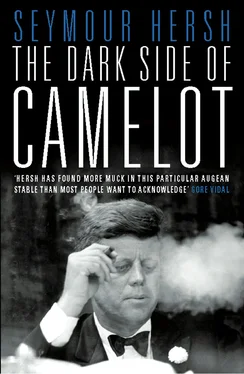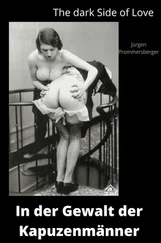* Beck resigned as chief of staff in protest against Hitler’s plan to invade Czechoslovakia, and was involved in a series of plots against Hitler for the next six years. He shot himself after the failure of Count Claus von Stauffenberg’s final attempt to assassinate Hitler, by bomb, on July 20, 1944. Halder, who served as chief of staff until September 1942, was arrested in the Gestapo’s widespread roundup after the 1944 bomb attempt and placed in a concentration camp. He survived the war.
* Even Rose Kennedy knew something was up. In her gossipy memoir, Times to Remember , she described an early 1939 lunch at 10 Downing Street at which she asked Chamberlain “if Hitler died would he be more confident about peace, and he said he would.” Rose defended her husband’s contrary view in her memoir, published in 1974, insisting that “of course, no one knew then that Hitler was criminally insane and had no intention of living by humane standards except his own demented ones, and that his promises meant nothing to him.” In Mrs. Kennedy’s view, presumably, “no one” would not include the millions of Jews who were being systematically persecuted throughout Germany and German-occupied Central Europe by 1939.
* In an interview in 1962 with Richard J. Whalen, Corcoran depicted Kennedy, with grudging admiration, as having staged a “remarkable coup d’état” in putting his son into the presidency. “You have to look at this piece of energy adapting itself to its time,” Corcoran said. “A man not afraid to think in a daring way. He had imperial instinct. He knew what he wanted—money and status for his family. What other end is there but power?” Jack Kennedy’s election in 1960 was a “long-shot risk,” Corcoran added, into which Joe Kennedy “slammed money.… These are not the attributes of the philosopher, the humanitarian, educators or priests. These are the attributes of those in command.”
* Bullitt and the president were briefly put on the defensive in late March 1940, when the German Foreign Office released a series of diplomatic documents that had been found in Polish archives after the seizure of Warsaw the previous September. In a private conversation in November 1938, Bullitt was said by Count Jerzy Potocki, the Polish ambassador to Washington, to have expressed “great vehemence and strong hatred about Germany and Chancellor Hitler. He said only strength, and that at the conclusion of a war, could make an end of the mad expansion of the Germans in the future.” In a talk a few weeks later, Bullitt was said to have given the Poles “moral assurance that the United States will leave its isolationist policy and be prepared in the event of war to participate actively on the side of France and Britain.” The White House quickly characterized the documents as propaganda and put out a statement, in Roosevelt’s name, urging that they “be taken with several grains of salt.” Over the next few days, however, reporters in Berlin were shown the documents in question and found them to have all the appearance of being genuine. One set of the Polish papers released by the Germans dealt with an interview with Joseph Kennedy, who, in a June 1939 talk with Jan Wszelaki, a Polish trade official, was quoted as boasting that his two eldest sons, Joseph and John, had recently traveled all over Europe and “intended to make a series of lectures on the European situation … after their return to the United States, at Harvard University … ‘You have no idea,’” Wszelaki further quoted Kennedy as telling him, “‘to what extent my oldest boy … has the President’s ear. I might say that the President believes him more than me.’”
By early October 1940, there was very bad blood between the president and his reluctant ambassador in England. Kennedy wanted out and he didn’t care who knew it. On October 10, he took advantage of a farewell meeting in London with Foreign Minister Halifax to issue a warning to Roosevelt—correctly anticipating that the British Foreign Office would relay the threat to the State Department via the British Embassy in Washington. “His principal complaint,” Halifax reported to the British ambassador, Lord Lothian, was that
they had not kept him adequately informed of their policy and doings during the last two or three months.… He told me that he had sent an article to the United States to appear on November 1st, if by any accident he was not able to get there, which would be of considerable importance appearing five days before the Presidential election. When I asked him what would be the main burden of his song, he gave me to understand that it would be an indictment of President Roosevelt’s administration for having talked a lot and done very little. He is plainly a very disappointed and rather embittered man.
Kennedy was more than embittered; he was in a rage. “I’m going back and tell the truth. I’m going home and tell the American people that that son of a bitch in the White House is going to kill their sons,” he told Harvey Klemmer over lunch on the day before he left London, as Klemmer recounted in the television interview made available for this book.
Arthur Krock, Kennedy’s faithful scribe, provided a detailed account of Kennedy’s blackmail plottings in his Memoirs:
On October 16 Kennedy sent a cablegram to the President insisting that he be allowed to come home.… That same day Kennedy telephoned … and said that if he did not get a favorable reply to his cablegram, he was coming home anyhow; … that he had written a full account of the facts to Edward Moore, his secretary in New York, with instructions to release the story to the press if the Ambassador were not back in New York by a certain date. A few hours after this conversation the cabled permission to return was received.
Kennedy’s “full account” referred to the extensive exchange of cables between Roosevelt and Churchill that had been relayed through the American Embassy. Those secret cables had a secret history known to only a few in America and England in the spring of 1940. Kennedy had been shocked in May when a special unit of British counterintelligence staged a late-night raid on the apartment of Tyler Kent, an American Embassy code clerk, and uncovered a cache of more than 1,500 decoded diplomatic cables that Kent had taken home. Kennedy took the unusual step of immediately revoking Kent’s diplomatic immunity—State Department immunity has never been revoked since—and Kent was secretly tried and convicted in a London court. He spent the war years in an isolated British prison on the Isle of Wight.
Kennedy’s decisive action to keep Kent’s betrayal of his nation—as well as the Roosevelt-Churchill correspondence—from becoming public has been credited by historians as high-minded and exemplary. Had this not been done, Kent could have been tried in America; his documents would become part of the court record, triggering anger and resentment in the Congress and among the many Americans opposed to U.S. involvement in the war in Europe. The furor, the historian Michael Beschloss wrote in his Kennedy and Roosevelt: The Uneasy Alliance , published in 1980, “might have eliminated any chance of a third term for the president and made it nearly impossible for him to move public opinion so swiftly toward aid to the Allies.… [Kennedy] was unwilling to influence American policy at the cost of an act that seemed illegitimate and disloyal.”
Kennedy had much more to gain, however, by making private use of the Tyler Kent materials in his war against FDR. American Embassy files show that on May 20, 1940, the day of Kent’s arrest, Ambassador Kennedy arranged to ship a diplomatic pouch full of “personal mail and various packages” to Washington, in the care of a friend in the State Department. On May 23, three days after Kent’s arrest, Kennedy sought and received authorization from the State Department for Edward Moore, his exceedingly faithful personal assistant, to return to New York with Rose Kennedy and their retarded daughter, Rosemary. Moore left London on May 28 and never went back.
Читать дальше












